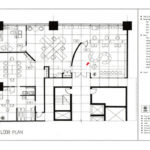As a homeowner anxious to maximize your vacation rentals, you happen to be competing with thousands of other owners who’re adding new, inventive online rental listings every single week. So you may want to step up your game. Here are some tips to help you make sure your listing does justice to your property, stands out from the crowd, and gets you that business you need.
Do your homework.
It pays to know your competition. So spend some time online searching for vapor cation rentals similar to your property. Note what works and what doesn’t.
Turn your headline into a workhorse.
The time you’ll spend crafting a concise and catchy headline will not be wasted. The headline should capture the feel and uniqueness of your property and your offer, grab the prospective renter’s attention and make him want to know more. Don’t waste precious space by repeating any information that will appear on the Web page Designs where your listing is published, like the number of bedrooms.
It’s a good idea to refresh your headline regularly. Try adding a promotion to the headline – “Cancellation, free nights” or highlighting an available week – “July 20-27, Jazz Festival”.
A strong headline and a wise choice of keywords should also increase the chances of your headline popping up when renters use search engines – with a bit of practice, you can get good at this.
An image is worth 1,000 words.
To maximize your impact by posting high-quality photos that show off the best features of the property – inside and out. Remove clutter for the photos but make sure the environment still looks warm. Pay attention to lighting – the rooms should look bright and cheerful. Add a couple of photos of community life and key venues… taken during the right season and on a sunny day. Change your photos every season. Be strategic about the order in which you post the photos, especially the thumbnail, and add dynamic captions – “Gorgeous sunsets from the patio off dining room”.
Look at your property through the eyes of your guest.
Some sites are structured in such a way as to help you cover all bases and forget nothing, so it’s worth your time to complete these sections diligently – a detailed ad will reassure your renter and, in the long run, will save your time. Over and above the usual amenities, remember to point out any unique features – a high-tech kitchen, workout room, or Jacuzzi bath can be a clincher for the right renter. Think about how you can add value to your offer – include any extras that you might be willing to negotiate, a car for example. If the site provides them, remember to make good use of the icons that provide guests with such information as smoking, pets, and wheelchair accessibility.
Recreate the vacation experience.
Try to convey what it will feel like to vacation at your property – appeal to the renter’s emotions. Reassure with words like “clean”, “spacious”, “private”, “quiet”, “safe/secure”. Entice with adjectives like “cozy and inviting”, “romantic”, “trendy”, “old world charm”. Mention the stunning view from your living room. It’s important to maintain your credibility and that of the site, so it pays to use professional language and avoid exaggerations.
Location, location, location. If your property is located in an interesting community, describe the spirit of that community, and mention key venues and coming events. Say how long it takes to get downtown to where the action is and mention the means of transportation. Use words that capture the potential experience and that means something to the reader. Instead of using proper names, such as March Atwater, say that your property is 5 minutes away from a “colorful, bustling outdoor market with a European feel, chock full of local cheeses and other local products.”
Make sure your rental price is competitive.
Again, check out the online competition. Clarify everything upfront – nightly, weekly, monthly, and seasonal rates; the length of minimum stays, deposit amounts; cleaning fees; taxes. Remember that you can charge a pet fee – pet owners would have to pay to board their pet anyway.
If you don’t mention a price, the renter may worry that the price is too high and may not want to take the trouble to contact you to find out. If you’re willing to negotiate, mention it.









